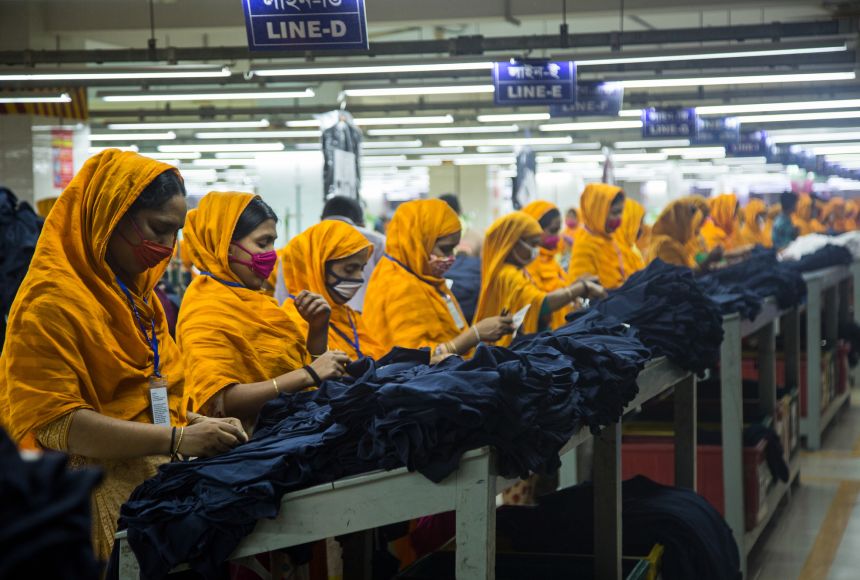Globalization is the connection of different parts of the world. The term is most often used in relation to the economy and economics. The economy is the level of business activity, availability of jobs, and the amount of money and wealth being produced and used. Economics is the study of all of that. In economics, globalization is the process in which businesses, organizations, and countries begin operating on an international scale.
In general, globalization has been shown to increase the standard of living in developing countries. "Developing" is a term used to describe certain countries that do not have the same access to technology and conveniences, or lack the wealth of countries like the United States or Japan. Standard of living is the level of wealth and comfort people have in their lives. However, some experts warn that globalization can badly affect people and societies in developing countries.
A Historical View
Globalization is not new. Since the start of civilization, people have traded goods with their neighbors. As cultures advanced, people were able to travel farther away to trade their own goods for desirable products found elsewhere. The Silk Road, an ancient network of trade routes used between Europe, North Africa, East Africa, Central Asia, South Asia, and East Asia, is an example of early globalization. For more than 1,500 years, Europeans traded glass and manufactured goods for Chinese silk and spices.
Another example of globalization is the Triangular Trade network. This was part of the transatlantic slave trade. Ships carried manufactured goods from Europe to Africa, and then forcibly brought enslaved Africans to the Americas. Raw materials, like sugar, tobacco, and cotton, were taken from the Americas back to Europe where they were made into products, which were then brought back to Africa and the cycle continued. The resulting spread of slavery shows how globalization can also hurt people.
The rate of globalization has increased in recent years as a result of advancements in communication, transportation, and information technology. Companies can more easily identify opportunities for expanding their businesses. Money can be transferred quickly across national borders. Improved rules within countries and international trade agreements between countries also ease globalization.
Benefits of Globalization
Globalization provides companies with a competitive advantage. They can obtain inexpensive raw materials and pay lower wages to workers in developing countries. At the same time, they use the technical expertise and experience of more-developed countries.
With globalization, different parts of a product may be made in different regions of the world. Different parts of a car may be manufactured in different countries. Even the making of products that seem simple, like cotton T-shirts, often involves businesses in several countries.
Globalization affects services, too. Many businesses located in the United States have outsourced their customer support call centers or information technology services to companies in India. Some U.S. car companies relocated their operations to Mexico, where labor costs are lower. This move was possible as part of the North American Free Trade Agreement (NAFTA), a trade agreement between the United States, Canada, and Mexico.
The result is more jobs in countries where jobs are needed. Increasing jobs in these countries can have a positive effect on businesses and result in a higher standard of living.
China is a great example of a country that has benefited immensely from globalization. Another example is Vietnam, where globalization has contributed to an increase in the prices for rice. As a result, many poor rice farmers in Vietnam were lifted out of poverty. As the standard of living increased, more children of poor families left work and attended school.
Consumers benefit too. In general, globalization decreases the cost of manufacturing. As a result, companies can offer goods at a lower price to consumers. Consumers also have access to a wider variety of goods. In some cases, this may contribute to improved health by enabling a more varied and healthier diet. In others, however, it is blamed for increases in unhealthy food intake and diabetes.
Downsides
Not everything about globalization is positive. Any change has winners and losers. Practically, workers in the developed world must compete with workers in other countries where salaries are lower.
The situation is more complex in the developing world, where the working conditions of people may be very difficult. The average worker at a factory making clothes in Bangladesh earns less in a month than a U.S. worker earns in a day. Critics also point out that work opportunities for children in poor countries may pull children of poor families away from school. Critics blame the pressures of globalization for encouraging an environment that takes advantage of workers in developing countries.
Studies also suggest that globalization may increase the gap in income of educated and less-educated members of a society. This is also known as income inequality.
Into the Future
Regardless of the downsides, globalization is here to stay. The result is a smaller, more connected world. Socially, globalization has facilitated the exchange of ideas and cultures, in some ways contributing to a world view in which people are more open and tolerant of one another.

